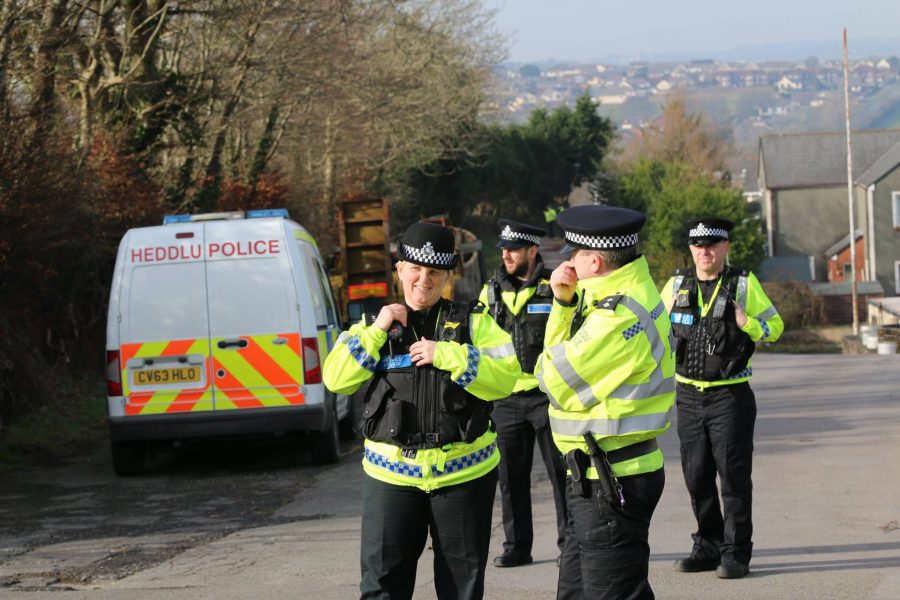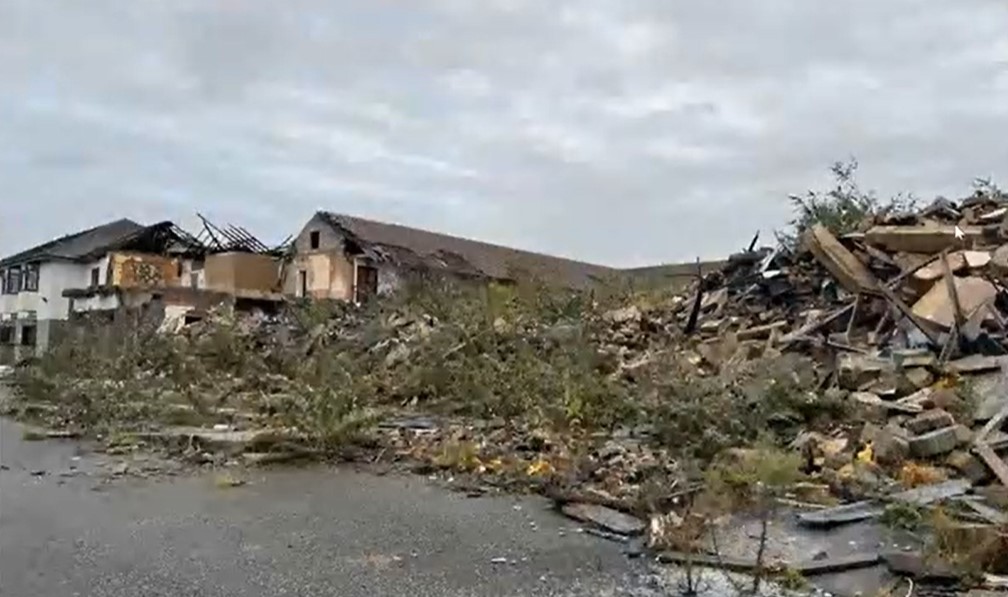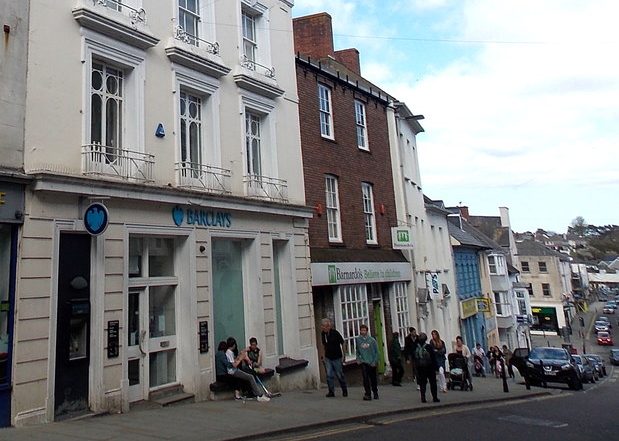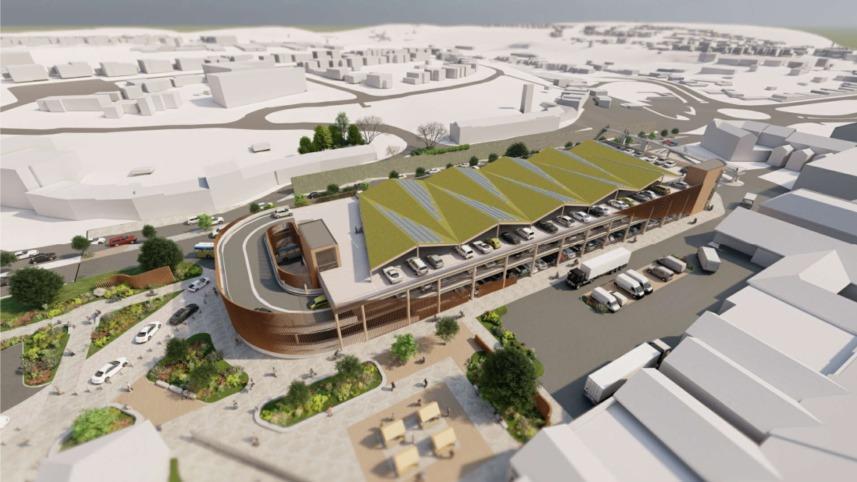Politics
Commissioner calls for police to be included on Covid-19 Vaccination priority list

POLICE and Crime Commissioner Dafydd Llywelyn is calling for the Welsh Government to include Police Officers on the Covid-19 Vaccination priority list so that they can be protected from the virus as a matter of urgency.
A petition calling for this to take place was recently set-up by a father of a Police Officer who fell ill following arresting a man who was infected by the virus. With over 6000 signatures already on the petition, there is support from Unison, the NPCC along with the Police Federation of England and Wales, and now Dyfed-Powys Police and Crime Commissioner, Dafydd Llywelyn is calling on the Welsh Government to ensure that front line officers are vaccinated as a priority.
PCC Llywelyn said; “Like all other First Responders and NHS staff, Police Officers risk their lives every day to keep the public safe, and are at a higher risk of contracting and transmitting COVID-19 due to their increased level of exposure with the general public and lack of regular testing.
“We have a situation at the Police Headquarters in Llangunnor, Carmarthen where we are providing resources to support the Welsh Ambulance Service to facilitate the vaccination process of their staff who are based at HQ, which is fantastic. But, I find it frustrating that while we are putting resources in place to carry out the vaccination process at HQ, it is still unclear, when the vaccination will become available to us to roll out to our Officers.
“Police Officers are essential workers, they are in face to face contact with the general public on a daily basis, dealing with difficult and complex situations, and as a result it is essential that they are included on the priority list like other First Respondents.
“I’m now calling on the Welsh Government for some clarity on the roll-out schedule, and that Police Officers are given the same priority as other emergency services so that the public are confident that they are safe when they come in to contact with the Police.”
Community
Social housing plans for Cleddau Bridge Hotel site backed

A SCHEME to build 38 affordable and social housing units on the site of a fire-ravaged former Pembrokeshire hotel has been backed by senior Pembrokeshire councillors.
Pembrokeshire County Council’s Cabinet, meeting on April 22, supported a contract with developer Castell Group Ltd for the mix of affordable homes and social housing units at the Cleddau Bridge Hotel site, Pembroke Dock.
Members, in a report presented by Cabinet Member for Planning & Housing Delivery Cllr Jon Harvey, heard Castell had approached the council’s housing service to determine whether there is an interest in working with them to bring forward the development as a social/affordable housing site.
Castell Construction Ltd specialises in the construction of affordable / social housing, typically for registered social landlords across south Wales, and hopes to build 12 one-bedroom flats, 15 two-bed houses, five three-bed, two four-bed, and four two-bed bungalows.
The development package would be part-funded from the housing revenue account, the remainder from the Social Housing Grant and/or second homes premium for affordable housing if it becomes available for the Housing Service to use in this manner.
Cllr Harvey – who moved approval – said the scheme was expected to provide £230,000 a year in rentals income, describing it as “an excellent opportunity to work with a proven developer for extra social housing in an area of proven need.”
Deputy Leader Cllr Paul Miller said he was supportive of the scheme, as was local member Cllr Joshua Beynon, saying: “It’s a bit of an eyesore at the moment, if we can bring this site back into meaningful use, and in an area where there is a need, I’m all in support of this.”
Members backed senior officers be delegated powers to enter into the works contract, and to have powers to proceed with the land acquisition.
If a subsequent planning permission is secured for the site, the homes could be built by autumn 2026.
In a prime location at one of the entrances to Pembroke Dock, the former Cleddau Bridge Hotel has been derelict since a fire in March 2019, which brought emergency services from as far afield as Ammanford, Aberystwyth and Swansea.
Community
County Hall to offer space for community banking

A CALL for Pembrokeshire County Council to potentially change its banking arrangement with Barclays, after it closed its Haverfordwest branch has been turned down, but County Hall is to offer space for community banking.
Barclays Bank, on the town’s High Street, is to close on May 10.
The council has had a banking services contract with Barclays since 2013.
Councillor Huw Murphy, in a notice of motion heard by Pembrokeshire County Council’s Cabinet meeting of April 22, asked the council to review its banking arrangements with Barclays following the announced closure.
e said the loss of a branch “not only impacts upon town centres and businesses but also disproportionately impacts the elderly who are less likely to embrace on-line banking options”.
A report for Cabinet members said, in terms of the impact on Pembrokeshire residents, Barclays has said that it is “not leaving Haverfordwest and [will] continue to provide face-to-face support for those who need it” via community locations.
Two options were presented to Cabinet: to retender the banking services contract, and, the favoured, to work with Barclays to ensure a community location is set up in Haverfordwest.
Members heard the costs associated with moving to a new banking service provider could be in excess of £50,000.
For the second, favoured option, members heard Barclays was in discussions with the council about a location for potential community banking.
Cabinet Member for Corporate Finance Cllr Alec Cormack, after outlining the risks in the report for members, and moving the notice be not adopted, said he had “considerable sympathy” with Cllr Murphy’s notice.
He told councillors there was a glimmer of light for banking arrangements in the county, with an agreement now signed for two ground floor rooms at County Hall, Haverfordwest, to be used for community banking.
From April 25, the rooms will be available on Wednesdays, Thursdays, and Fridays, members heard.
Cabinet Member for Planning & Housing Delivery Cllr Jon Harvey also said he had “a lot of sympathy” for the motion, adding: “It’s excellent news a deal has been struck to occupy the ground floor rooms three days a week; hopefully this will mitigate, to a certain amount, the closure.
“If we can work with the respective banks to get a community-type approach let’s move forward.”
Politics
Next stage of £19m Haverfordwest interchange backed

THE SECOND stage of building Haverfordwest’s near-£19m transport interchange has been backed, with senior councillors hearing it could cost the council more to not support it.
The transport interchange, which includes an integrated bus station and construction of a new multi-storey car park, is part of a wider series of regeneration projects in the county town.
The total cost of the scheme in the approved budget is £18.881m, £1.987m from Pembrokeshire County Council; the remainder, £16.894m, from an already-awarded Welsh Government grant.
To date, £3.425m has been spent on advanced works, including the demolition of the old multi-storey car park and a temporary bus station.
Members of Pembrokeshire County Council’s Cabinet, meeting on April 22, were recommended to approve the award of the Stage 2 construction contract for the Haverfordwest Transport Interchange.
The report for members listed two simple options for Cabinet, to authorise the award of a contract, recommended, or to not.
For the latter it warned: “It is envisaged Welsh Government will withdraw the funding awarded and the council would need to repay grants received to date; £10.322m has been received to date of which £3.376m has been offset against expenditure.”
It added: “Cost to cease this project could cost PCC more in terms of grant repayment and any capital work required to make good. PCC match contribution for the project is forecast as £1.987m of the £18.881m.”
Planning permission for the interchange was granted in 2022, with a temporary bus station constructed that year and the old multi-storey building demolished in 2023.
That year, members of the county council’s Cabinet agreed a temporary car park will be sited on the demolished remains of the old multi-storey car park until the Haverfordwest Public Transport Interchange – delayed as no compliant tender had been found at the time – is built.
Speaking at the meeting, Deputy Leader Cllr Paul Miller said: “The interchange is an important part of the regeneration of Haverfordwest, it will not regenerate Haverfordwest on its own, it is part of a wider process. The alternative to us being engaged is we simply allow it to decline and fail.”
He said the interchange was about “making it easier to visit Haverfordwest,” making parking provision “really straightforward, making it easy and convenient as possible”.
Cllr Miller said not progressing with the scheme would risk the grants already obtained, meaning the council could potentially foot the bill for costs to date, at a greater level than progressing.
He said the cost options were a near-£2m subsidised council involvement for the whole scheme or the £3m-plus spent to date if the scheme was ended, which would leave the car park as it is now.
“It’s pretty reasonable that if they give us the money and we don’t build a transport interchange they’ll be looking for that money back,” Cllr Miller said.
He said previous figures from parking revenue – back in 2019 – amounted to £100,000 a year; and could be expected to at least double on a “like-for-like” basis following the increase in parking charges.
Members, after a private and confidential session over the actual contract details, agreed to proceed with the scheme, awarding the contract to Kier Construction Western and Wales.
-

 News6 days ago
News6 days agoSearch for missing teenager Luke continues at Pembroke Dock
-

 News4 days ago
News4 days agoPolice issue update on the search for Luke, missing from Pembroke Dock
-

 Crime7 days ago
Crime7 days agoEstate agents admit health and safety failings following fatal market incident
-

 News6 days ago
News6 days agoMan jailed after scarring police officer in Narberth altercation
-

 News6 days ago
News6 days agoPembrokeshire hostel manager narrowly avoids jail sentence
-

 Sport5 days ago
Sport5 days agoHerbrandston Clinch Promotion to Division One
-

 News3 days ago
News3 days ago20mph U-turn: Some roads will return to 30mph following public outcry
-

 Community3 days ago
Community3 days agoMiracle pup finds her forever home after heart-wrenching journey





















